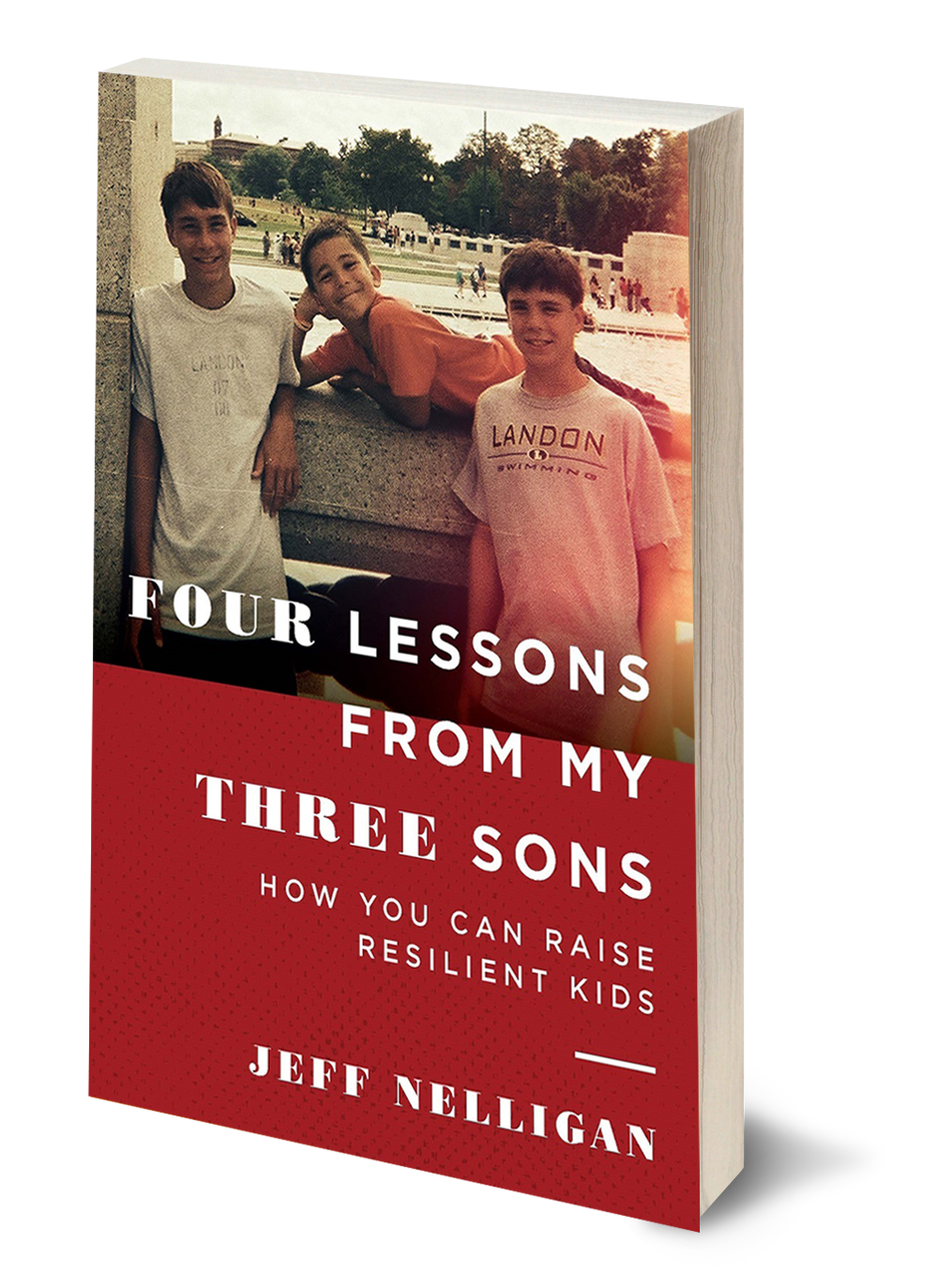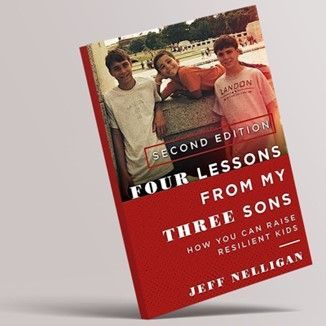"Just get the ball to Louie!"
Jeff Nelligan • October 17, 2019
How your kid can develop confidence and self-awareness
The most remarkable coach the boys ever had was a guy named Mark Dubick, a Bethesda neighbor and a former member of the high-powered University of Maryland lacrosse team. The boys were aware of my total respect for the guy and once when the three of us were driving home from a practice, the eldest son asked, “Dad, why do you like Coach Dubick so much?” “Because he’s exactly like my old Drill Sergeant Harrison,” I responded, “Except Coach is short, white, and Jewish.”
Dubick personally selected a top-caliber lacrosse team from about 150 kids at tryouts. Yeah, “cuts” after a “competition” where kids were “judged” on their “abilities” – that is, a setting before which kids had practiced endless hours and weeks and months trying to improve their skills. Imagine that. Every kid on the final team was good; there was one kid who was great – Louie, Coach Dubick’s son.
When things in a game got tight, there was one hoarse, penetrating yell you could count on: “Just get the ball to Louie!” I can still hear it and see Coach Dubick, always unshaven, his wispy hair flying, gesturing wildly with his clipboard. Far from being some crazed Dad, he was exactly right. Louie was that rare player who could score at crunch time. He was one reason the team was 37-1-1. When the heat was on, Louie gave us the best chance to win and every kid and parent knew it. Driving back from games, we’d talk about it all and some-times mimic Coach Dubick. It wasn’t in jest because we all respected the guy.
It was a classic phrase and one day the old man decided to make a point. “You know guys, we always hear Coach yelling for Louie when the team’s in a hole. But you know why? Because,” and here I pointed at my eldest son, Louie’s teammate, “we know what he can do and you can’t do. Louie scores when it’s all on the line and you can’t. Yeah, you’re good and that’s why you’re on Dubick’s team. But the key is, in any kind of situation you are in, you gotta know how you fit into it all, how you can help the overall effort. You gotta be self-aware and that means, when you’re on the field, you gotta work to get the ball to Louie.”
And let me emphasize, this is a landscape way beyond the athletic fields – it’s the whole adolescent world.
The most obvious settings are the easiest: In a classroom, means respectful behavior, expending effort. In social situations, knowing your role means getting along, being genuine, contributing to a peer group with conversation and humor but also listening more than speaking. Self-awareness marks that kid who knows himself and hence, doesn’t yield to the pressure to do something stupid.
One of the most important conversations I ever had with my eldest son consisted of eight words. He called me from a friend’s house at 10 p.m., an hour before I was to pick him up. “Hey Dad, you need to come get me.” “Oscar Mike,” I replied reflexively, our family code for ‘on the move.’ Driving him home, my son explained that some unknown kids had showed up at the house and started drinking. My kid panicked: Totally illegal behavior, parents letting it slide, kids getting drunk. Maybe the Police. He knew his role alright – get the hell out of there.
He knew that if the worst happened, and it often does, that he’d be caught up in it. And then forget it: Forget all the achievements; forget the work in the class and on the fields. It wouldn’t be an asterisk on his record, it would be a big fat red check mark.
The point is, a kid who knows his role – who has perspective on his surroundings - who intuitively knows the next, right step - is not going to find himself in compromising situations.
The older they got, the more they were beginning to think for themselves, and a few times that meant big-time reproach for the old man. When the eldest was in 9th grade, I goaded – there’s no other word – him about running for a student government office at school. “Hey man, you have a lot of pals, you’re a pretty good talker, you really oughta run for something.” He kept demurring and of course, irritating Dad that I was, I kept at it, not even considering that he was fine with who he was at school and what he was doing.
#####
ABOUT THE BOOK
Every Dad in America wants to raise a resilient kid.
Four Lessons from My Three Sons charts the course.
Written by a good-natured but unyielding father, this slim volume describes how his off-beat and yet powerful forms of encouragement helped his sons obtain the assurance, strength and integrity needed to achieve personal success and satisfaction. This book isn't 300 pages of pop child psychology or a fatherhood "journey" filled with jargon and equivocation. It's tough and hard and fast. It’s about how three boys made their way to the U.S. Naval Academy, Williams, and West Point – and beyond.











